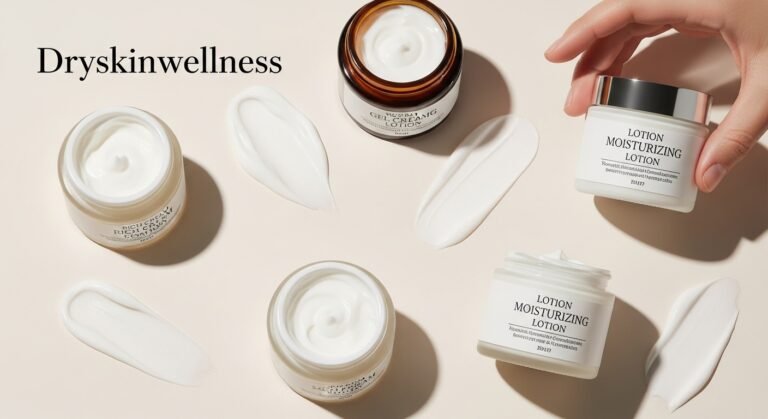Is Dry Skin A Sign Of Cancer? | Understanding The Connection
Is dry skin a sign of cancer? Dry skin is a common condition that many people experience, especially those living in dry climates. However, it’s essential to understand whether dry skin could indicate a more serious underlying health issue, such as cancer.
In this blog post, we will explore the correlation between skin changes and cancer symptoms, as well as provide valuable prevention tips for people living in dry climates.
Lack of Moisture
A lack of moisture characterizes dry skin and can result in discomfort, flakiness, and itchiness. It’s often a benign condition caused by external factors like weather or an underlying health concern, including certain types of cancer. Understanding the potential correlation can help individuals take proactive steps toward maintaining their overall health.
Understanding Dry Skin
Before delving into the correlation between dry skin and cancer, it’s essential to understand the common causes and debunk any misconceptions surrounding dry skin. Dry skin can be caused by external factors such as low humidity, hot showers, harsh soaps, or frequent handwashing.
Additionally, certain skin conditions like eczema or psoriasis can contribute to dryness. By addressing these causes, individuals can effectively manage and alleviate dry skin symptoms.
What to Do If You Suspect Symptoms?
If you notice persistent dryness or other skin-related symptoms that concern you, it is crucial to take action. Schedule an appointment with your healthcare provider to discuss your concerns and undergo a thorough evaluation.
They can assess your symptoms, conduct any necessary tests, and provide appropriate guidance. Remember, early intervention can significantly impact the effectiveness of treatments and overall outcomes.
Correlation Between Dry Skin and Cancer
While dry skin is usually not a direct symptom of cancer, there are instances where it can be associated with certain types of skin cancer.
For example, some types of skin cancer, such as basal or squamous cell carcinoma, can cause dry patches or scaly skin. However, it’s important to note that dry skin alone does not necessarily indicate cancer. Regular skin checks, along with other symptoms or risk factors, should be considered when assessing potential health concerns.
Prevention Tips for Dry Skin
To maintain healthy skin and reduce the risk of dryness-related problems, here are some essential prevention tips for people living in dry climates:
- Hydration and Moisturization: Drink plenty of water to keep your body hydrated from within. Additionally, apply a moisturizer regularly to lock in moisture and prevent excessive dryness.
- Use of Gentle Skincare Products: Opt for gentle, fragrance-free skincare products specifically formulated for dry skin. Avoid harsh soaps or cleansers that can strip the skin of its natural oils.
- Protection from the Sun: Protect your skin from the harmful effects of the sun by wearing sunscreen with a high SPF, seeking shade during peak sun hours, and wearing protective clothing.
- Home Remedies and Natural Treatments: Consider incorporating natural remedies such as coconut oil, oatmeal baths, or aloe vera gel to soothe and hydrate dry skin. However, consult with a dermatologist before trying any new home remedies.
Skincare Product Recommendations
To effectively combat dry skin in dry climates, here are some specific product recommendations:
- Moisturizers: Look for moisturizers with hydrating ingredients like hyaluronic acid or ceramides. Some recommended options include CeraVe Moisturizing Cream, Neutrogena Hydro Boost Gel-Cream, or Aveeno Daily Moisturizing Lotion.
- Cleansers: Choose gentle cleansers that won’t strip the skin of natural oils. Some suitable choices are Cetaphil Gentle Skin Cleanser, La Roche-Posay Toleriane Hydrating Cleanser, or Vanicream Gentle Facial Cleanser.
- Sunscreen: Invest in a broad-spectrum sunscreen with an SPF of 30 or higher, such as EltaMD UV Clear Facial Sunscreen, Neutrogena Ultra Sheer Dry-Touch Sunscreen, or La Roche-Posay Anthelios Melt-In Milk Sunscreen.
Remember to consult with a dermatologist to determine the best skincare products for your specific needs and skin type.
FAQ
Can dry skin be a sign of cancer?
While dry skin is usually not a direct symptom of cancer, certain types of skin cancer can cause dry patches or scaly skin. However, it’s essential to consult with a healthcare professional for proper diagnosis and treatment.
What are some common causes of dry skin?
Some common causes of dry skin include low humidity, hot showers, harsh soaps, frequent handwashing, and certain skin conditions like eczema or psoriasis.
How can I prevent dry skin in a dry climate?
Some essential prevention tips for people in dry climates include staying hydrated, using gentle skincare products, protecting the skin from the sun, and incorporating home remedies or natural treatments.
Are there any recommended skincare products for dry skin in a dry climate?
Yes, some recommended products include moisturizers with hydrating ingredients like hyaluronic acid or ceramides, gentle cleansers that won’t strip the skin of its natural oils, and broad-spectrum sunscreens with an SPF of 30 or higher. Consult a dermatologist for personalized recommendations based on your skin type and needs.
When should I seek medical attention for my dry skin?
If dry skin persists despite prevention methods or other concerning symptoms, it’s essential to seek medical attention. Additionally, individuals with a family history of skin cancer or those who have noticed changes in existing moles should also consult with a healthcare professional for further evaluation.
Final Thought
In conclusion, is dry skin a sign of cancer? It’s just a myth. While dry skin is often a benign condition, it’s essential to be aware of the potential correlation between dry skin and certain types of cancer. By following the prevention tips mentioned above, individuals living in dry climates can effectively manage dry skin and reduce the risk of associated complications.
Remember to prioritize regular skin checks and consult a healthcare professional if you notice any concerning changes or symptoms. Taking care of your skin is not only essential for its health but also for your overall well-being.



